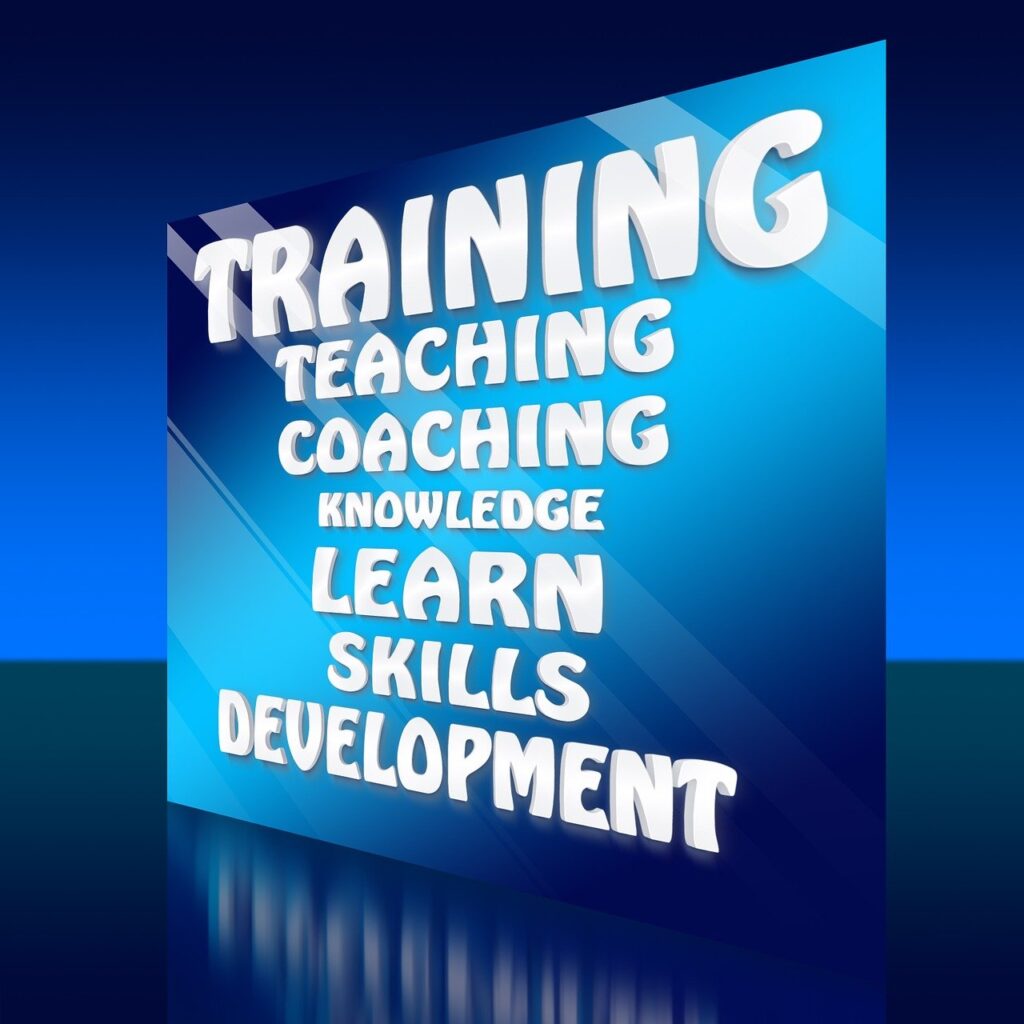We are only on this planet once. Why wouldn’t we want to do what makes us happy? If you are not enjoying it, leave for where you will be, for the sake of you and your family, and if you want or need to stay, then do something about it. Be an agent of change for self, others and the team. Make it fun.
Workplace leaders need to consider continuous growth and professional development as being crucial for career success. When it comes to professional development, individuals often find themselves faced with the choice between working with a coach, trainer, or mentor.

Each of these roles offers unique benefits and approaches to personal and professional growth. This post will explore the distinctions between coaches, trainers, and mentors, helping you make an informed decision about which path is best suited for your professional development needs.
Understanding the Roles
Coach
A coach is a professional who helps individuals improve specific skills, behaviours, or performance through a structured, goal-oriented process. Coaching should push boundaries, work through the hard things, and to create life changing events for the better. It should be fun. You need to enjoy the process, and to know these situations all create a better you. Coaching is typically:
- Short-term and focused on achieving specific objectives
- Driven by the coachee’s needs and goals
- Based on asking powerful questions to facilitate self-discovery
- Aimed at improving performance and developing new skills
Coaches work collaboratively with their clients to identify areas for improvement, set clear goals, and develop action plans to achieve those goals. They provide support, accountability, and feedback throughout the process
Trainer
A trainer is an expert in a particular field who imparts knowledge and skills to others through structured learning experiences. There could be specific activities taking place during the session (let’s hope there is) so that you practice applying the new skills and learnings. Training is generally:
- Focused on teaching specific skills or knowledge
- Structured around a curriculum or learning objectives
- Delivered through workshops, seminars, or courses
- Aimed at improving competence in a particular area

Trainers provide instruction, demonstrate techniques, and offer practice opportunities to help learners acquire new skills or knowledge. They often work with groups but can also provide one-on-one instruction.

Mentor
A mentor is an experienced professional who provides guidance, support, and advice to a less experienced individual (mentee) over an extended period.
Mentoring relationships are typically:
- Long-term and focused on overall career and personal development
- Based on the mentor’s experience and wisdom
- Less structured and more relationship-oriented
- Aimed at fostering growth, confidence, and career advancement
Choosing the Right Path for Your Professional Development
When deciding between a coach, trainer, or mentor, consider the following factors:
1. Your Specific Goals and Needs
- If you need to improve a specific skill or performance area, a coach or trainer might be most appropriate.
- For broader career guidance and long-term development, a mentor could be the best choice.
2. Time Frame
- Coaching and training are often shorter-term engagements focused on specific outcomes.
- Mentoring relationships typically last longer, sometimes spanning years.
3. Learning Style
- If you prefer structured learning with clear objectives, training might suit you best.
- For those who thrive on self-discovery and reflection, coaching could be more effective.
- If you value learning from others’ experiences and insights, mentoring might be ideal.
4. Level of Expertise Required
- Trainers are experts in their field and can impart specific knowledge and skills.
- Coaches don’t necessarily need to be experts in your field but should be skilled in facilitating growth and development.
- Mentors typically have significant experience in your industry or career path.
5. Desired Outcomes
- For immediate performance improvement or skill acquisition, consider coaching or training.
- For long-term career guidance and personal growth, mentoring might be more beneficial.
Choosing between a coach, trainer, and mentor depends on your specific needs, goals, and preferences. Each approach offers unique benefits for professional development. By carefully considering your objectives and the characteristics of each role, you can select the most appropriate path, or even a combination of paths, so that you support your growth and success.
We always have a choice to change our priorities and create our own professional development plan. Make the choice today.
Remember, professional development is an ongoing journey. Be open to exploring different approaches as your needs evolve, and don’t hesitate to seek guidance from multiple sources to maximise your potential and achieve your career aspirations.


